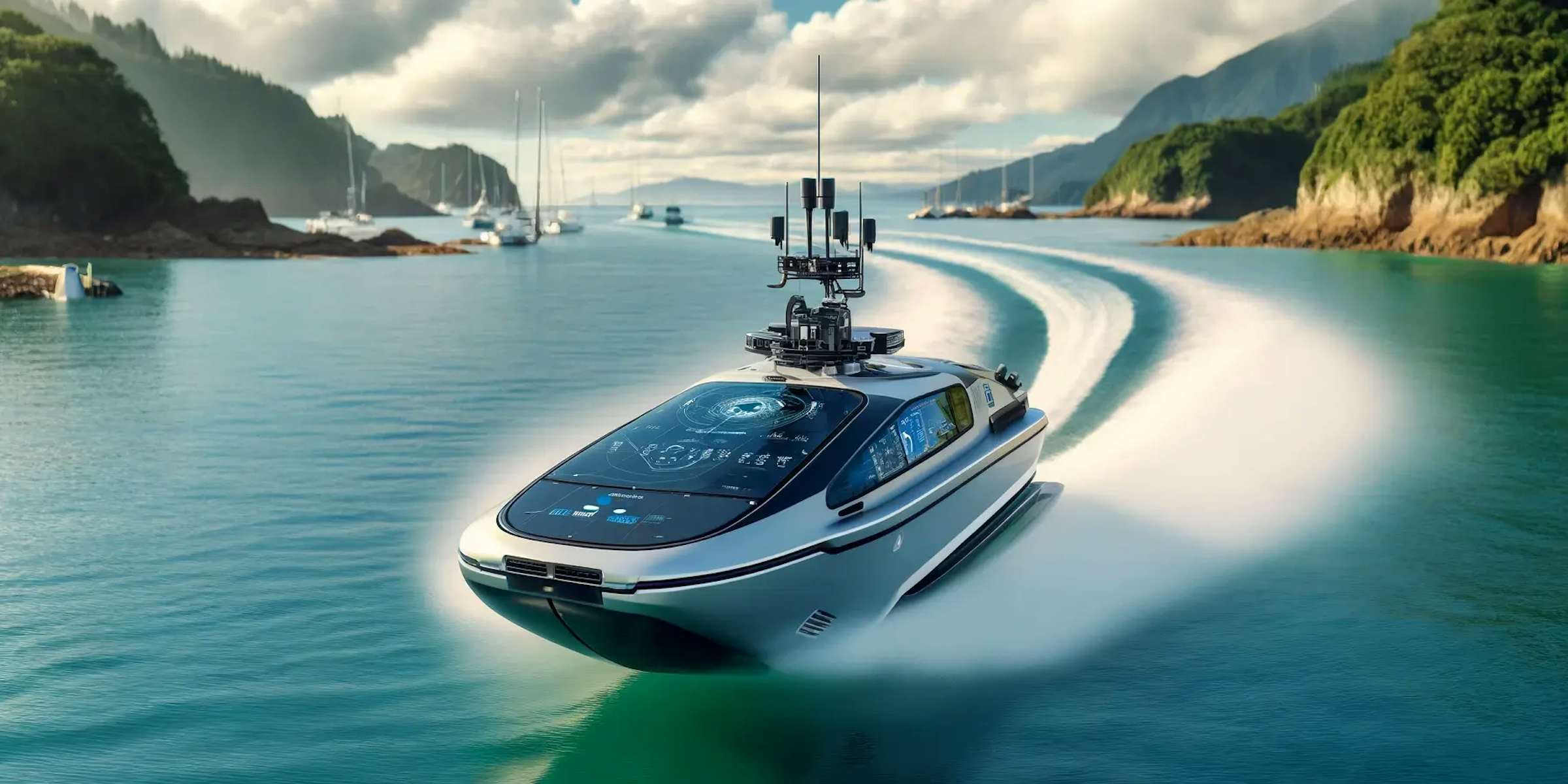
The Rise of AI in Boating: Navigating the Future for Kiwi Mariners
A new era in boating technology is dawning, promising to redefine the experiences of Kiwi mariners. Artificial Intelligence (AI), once a distant dream confined to the realms of science fiction, is now making waves in the maritime world. In this article, we take a look at how AI is poised to transform boating, enhancing everything from navigation to boat maintenance, ensuring safer, more efficient, and enjoyable voyages.
The Advent of AI in Navigation and Safety
AI-driven navigation systems are at the forefront of maritime technology, offering unprecedented precision and predictive capabilities. For New Zealanders, who often face rapidly changing weather conditions and challenging seas, AI can be a game-changer. Technologies such as advanced chart plotters and sonar systems are now equipped with AI to process massive amounts of data in real-time, improving situational awareness and aiding in collision avoidance.
A significant advancement in this area is Volvo Penta's self-docking system, which uses sensors and AI algorithms to perform perfect docks every time, a boon for recreational boaters at busy marinas like Auckland's Viaduct Harbour. This technology not only enhances safety but also makes boating more accessible to novices and experienced sailors alike.
AI's Impact on Boat Maintenance and Operations
Maintenance is a critical aspect of boating that can often be cumbersome and costly. AI is changing this paradigm by enabling predictive maintenance. By analysing data from various boat sensors, AI can predict equipment failures before they occur, allowing for timely interventions that can save both money and time.
Furthermore, AI is optimizsing fuel efficiency and route planning. Sophisticated AI algorithms analyse upcoming weather patterns and ocean currents to recommend the most fuel-efficient routes, a significant advancement for long-distance cruisers navigating the Pacific.
AI in Autonomous Boats and Shipping
The concept of fully autonomous vessels is no longer just theoretical. Projects like the Mayflower Autonomous Ship project, which aims to traverse oceans without human intervention, highlight the potential of AI in revolutionising maritime travel and shipping. While fully autonomous boats are still a rarity in New Zealand's waters, the technology underpinning these vessels offers exciting possibilities for the future of commercial shipping and leisure boating.
Challenges and Ethical Considerations
Despite the promising advancements, the integration of AI into boating raises several ethical and safety concerns. Issues such as data privacy, decision-making in unforeseen circumstances, and over-reliance on technology must be addressed. The regulatory landscape is still catching up with these rapid technological changes, posing challenges for compliance and standardisation.
Future Outlook and Innovations
Looking ahead, the integration of AI with other technologies such as the Internet of Things (IoT) and smart marinas are likely to further enhance the boating experience. Innovations are expected to streamline operations, from automated check-ins at marinas to IoT-enabled safety gear that communicates directly with onboard AI systems.
For New Zealand's boating community, AI represents a tidal shift towards safer, more efficient, and more enjoyable boating experiences. As we navigate this new technological seascape, it is crucial for mariners, regulators, and the boating industry to collaborate closely, ensuring that these innovations lead to sustainable and responsible boating practices. Embracing AI in boating isn't just about keeping up with global trends—it's about leading the charge in maritime safety and enjoyment for all Kiwis.